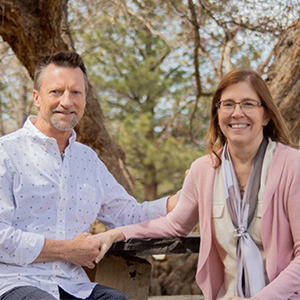What is PTSD?
Many people have heard of PTSD (Post-Traumatic Stress Disorder). PTSD can be caused by a one-time event such as:
- serious accidents
- physical or sexual assault
- abuse, including childhood or domestic abuse
- exposure to traumatic events at work, including remote exposure
- serious health problems, such as being admitted to intensive care
- childbirth experiences, such as losing a baby
- war and conflict
- torture.
PTSD can cause:
- intrusive memories – such as flashbacks or nightmares
- avoidance – avoiding places, people or activities that remind you of the traumatic event
- negative changes in thinking and mood – anxiety or depression, not remembering the traumatic event, and
- changes in physical and emotional reactions – becoming easily startled, trouble sleeping or concentrating.
Symptoms can vary over time or vary from person to person.
What is Complex-PTSD?
But what is Complex-PTSD (also sometimes called Complex Trauma)? Complex-PTSD is caused in childhood by adverse experiences. Many of us have C-PTSD and are unaware of it. After all, everyone has difficult experiences as children don’t they? Well, yes and no. The Adverse Childhood Experiences (ACE) quiz identifies ten types of trauma that children might experience that will affect their lives far into adulthood. You may be surprised how many of these experiences you might have had. Take a moment to answer the following questions:
Before your 18th birthday…
- did a parent or other adult in the household often or very often…
swear at you, insult you, put you down, or humiliate you? or act in a way that made you afraid that you might be physically hurt? - did a parent or other adult in the household often or very often…
push, grab, slap, or throw something at you? or ever hit you so hard that you had marks or were injured? - did an adult or person at least five years older than you ever…
touch or fondle you or have you touch their body in a sexual way? or attempt or actually have oral, anal, or vaginal intercourse with you? - did you often or very often feel that…
no one in your family loved you or thought you were important or special? or your family didn’t look out for each other, feel close to each other, or support each other? - did you often or very often feel that…
you didn’t have enough to eat, had to wear dirty clothes, and had no one to protect you? or your parents were too drunk or high to take care of you or take you to the doctor if you needed it? - was a biological parent ever lost to you through divorce, abandonment, or other reason?
- was one of your parents:
often or very often pushed, grabbed, slapped, or had something thrown at him/her? or sometimes, often, or very often kicked, bitten, hit with a fist, or hit with something hard?
or ever repeatedly hit over at least a few minutes or threatened with a gun or knife? - did you live with anyone who was a problem drinker or alcoholic, or who used street drugs?
- was a household member depressed or mentally ill, or did a household member attempt suicide?
- did a household member go to prison?
How did you score? If you scored 4 or higher, it is likely that you experience symptoms of Complex-PTSD.
Symptoms of C-PTSD
Those who have C-PTSD were hurt over and over by their primary caregivers and became hyper-vigilant (constantly on guard) in order to protect themselves. Because children do not have the cognitive ability to realize their parents were at fault, they take the blame onto themselves, which leads to a constant feeling of shame. This shame often leads to anxiety and/or depression. It can also lead adults to have drug and/or alcohol abuse, relationship problems, and be prone to committing suicide. This continual stress over many years causes the body’s cells to degenerate which leads to many physical issues, such as heart and lung disease, cancer, stroke, and a shorter life expectancy than those who do not have C-PTSD.
What Can Be Done?
These statistics are frightening, but there is hope. In my next blog, I will describe ways that a person with C-PTSD can move past their adverse childhood experiences and find a better future.



